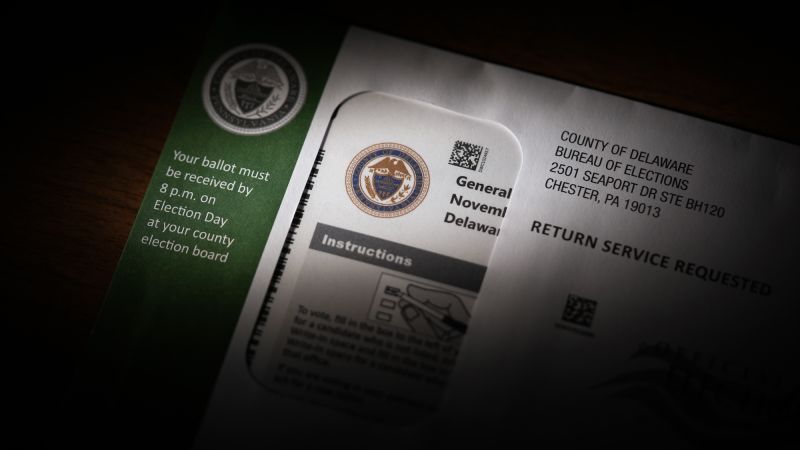Donald Trump’s campaign is promoting early and mail-in voting, contradicting his previous claims of fraudulence in these voting methods. The campaign, including Trump’s daughter-in-law Lara Trump, has actively encouraged voters to use early voting options, including mail-in ballots. Despite Lara Trump’s previous false allegations of fraud in the 2020 election due to mail ballots, the campaign is now advocating for these methods and expanding voting access in North Carolina following Hurricane Helene. Over 286,000 robocalls promoting early and mail voting were sent to voters in key swing states such as Pennsylvania, Georgia, Wisconsin, Arizona, Nevada, and Michigan.
While voting rights advocates appreciate the bipartisan effort to expand voting access in the wake of Hurricane Helene, they note the Trump campaign’s history of trying to restrict voting, particularly during the pandemic in 2020. The campaign filed lawsuits to stop state changes aimed at making it easier to vote by mail, raising concerns about the true intentions behind the current push for expanded access. As North Carolina, a key swing state, is impacted by the hurricane, the Trump campaign’s efforts in regions favorable to Trump aim to ensure that voters can participate in the election despite the damage.
Trump’s previous negative rhetoric on early and mail-in voting has shifted as he actively promotes these methods as part of the Republican National Committee’s get-out-the-vote program. The conflicting messaging from Trump, who has disparaged early voting at rallies but now encourages it, reveals a change in strategy as he faces a close election against Vice President Kamala Harris. While Lara Trump has also supported early and mail voting in Nevada, her previous statements echoing her father-in-law’s fraudulent claims in 2020 elections run counter to the current push for expanded access.
As Hurricane Helene impacts voting access in states like North Carolina and Georgia, the Trump campaign is proposing policy changes to help affected voters participate in the election. North Carolina has enacted measures to give flexibility to counties in running their elections, similar to Trump’s proposals. However, in Georgia, where Republicans opposed an effort to expand voting access after the hurricane, a federal judge denied extending the voter registration deadline. Despite differing responses to the hurricane’s impact on voting access in various states, the Trump campaign and RNC are advocating for expanded access in areas affected by the disaster.
The push for expanded voting access in the aftermath of Hurricane Helene highlights the varying responses from different states and parties. While Democrats and voting rights advocates support expanding access for displaced voters, Republicans have been inconsistent in their approach, opposing measures in some states while advocating for them in others. The Trump campaign’s focus on early and mail voting contradicts previous claims of fraud in these methods, signaling a shift in strategy as the election nears. As the campaign urges voters to participate in the election through various methods, the issue of election integrity and expanding access remains a central point of contention between political parties.


